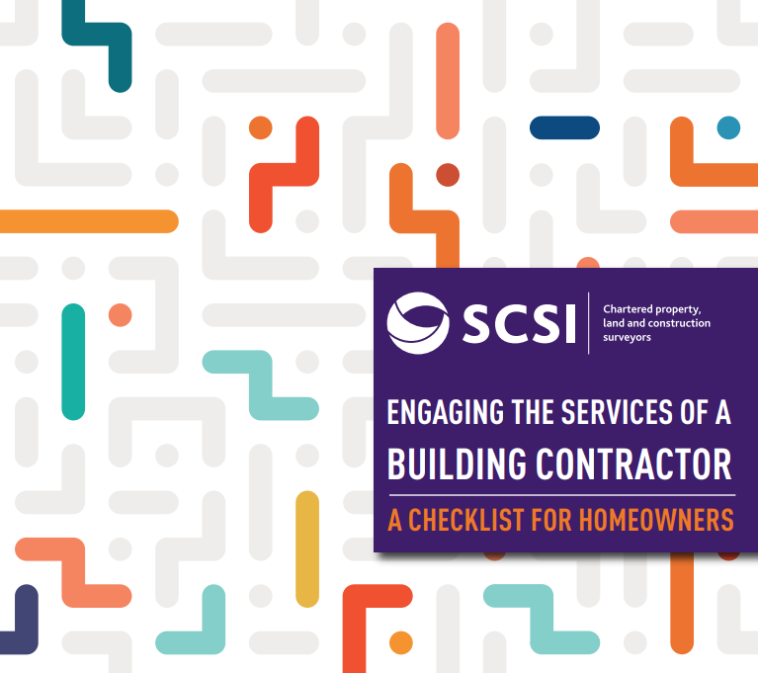The Society of Chartered Surveyors Ireland (SCSI) issues new guidance for those who plan to hire a builder to extend or renovate their house.
The six page consumer guide, published October 11th 2022 by the SCSI, sets out your statutory obligations and presents what you should expect from your builder in a checklist format.
There is also a section about hiring a building surveyor and other professionals the SCSI represents.
Aimed at renovations and extensions, the one page list of questions to ask your builder is especially helpful, and the document includes advice to avoid the most common pitfalls.
At the launch, chartered building surveyor and SCSI Vice President Kevin Hollingsworth said:
[adrotate banner="56"]“Renovation work and extensions don’t come cheap – especially with the significant increases we’ve seen over the last 18 months in construction costs. So given the sums involved we are always surprised at the number of people who don’t check the references of their contractors and physically review previous jobs they have done. Other big misses would include not having a contract or even a written quotation in place – this is an important document should anything to wrong. Another common error we see is people paying too much in advance.”
Chartered quantity surveyor Claire Irwin said: “Homeowners often agree works with a builder only to be presented with unforeseen costs later on in a project. Or else they just include the building works. They don’t factor in furniture, fitouts, professional fees, accommodation costs or contingencies. All these add up and can lead to significant upward cost revisions. Delays in drawing down finance if depending on bank loans or failures to apply in good time for grants are other issues which can lead to cashflow problems, delays and inevitably stress for everyone involved.”
SCSI Top Ten Tips when engaging a building contractor
Planning: Does your extension / project qualify as an exempt development or do you need planning. Check with local authority to establish if you require permission.
Grants: If you are undertaking an energy upgrade or restoring a property, there may be grants available. Check with the relevant bodies / schemes well in advance eg Energy Efficient Homes – Home Energy Upgrades And Grants | SEAI
References: Ask the contractor for references, review recent work they have done and visit them at their offices.
Quotes, Insurance & Contract: Get three detailed quotes and once you’ve selected the contractor, ask for a copy of their insurance before drawing up and signing a contract. Also notify your insurance provider before works commence.
Budget & Payments: Draw up detailed plans and ensure you budget for things like furniture, fittings, professional fees as well as contingencies. Agree a payment plan with the contractor at the outset.
Registration: Ensure your builder is registered with Construction Industry Register of Ireland (CIRI) and the Companies Registration Office and that all tradespeople are similarly registered with relevant trade and or professional bodies.
Timelines: Agree timeline for start, benchmarks such as installation of key elements and of course a finish date. Find out if you will be able to stay or have to move out?
Sustainability: Maximise energy efficiency with regard to glazing, lighting, heating and insulation. As well as being good for the environment, you are future proofing your new build.
Regulations: In order to avoid defects, ensure works are inspected at the appropriate time and in compliance with building regulations and building controls.
Safety: Is the contractor complying fully with health and safety guidelines. Check the Health Safety Authority website homeowners_guidance.pdf (hsa.ie)



